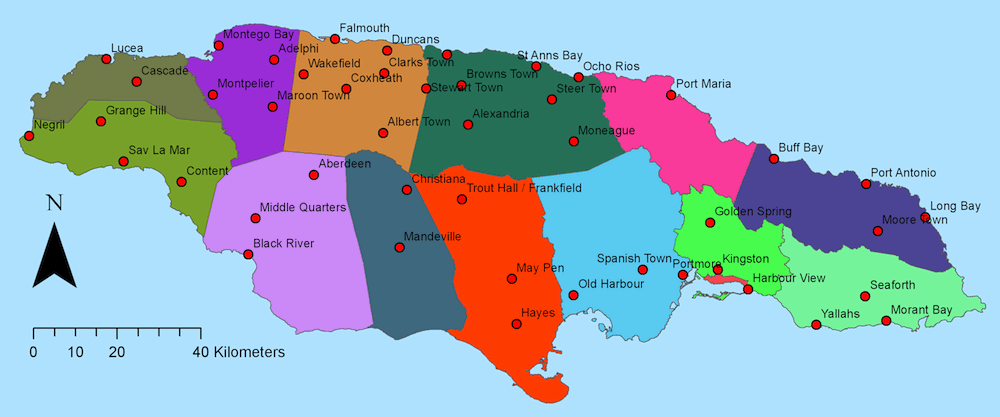
Dr. Peter Edwards used the Contingent Valuation Method to ask Jamaicans how much Cockpit Country was worth to them.
A team of professional surveyors interviewed over 2,000 Jamaicans in various locations over the entire Island and, after describing and explaining
the benefits of Cockpit Country, asked a series of questions including one valuation question.
Click link for typical instrument
Click link for the Policy Brief.
OVERVIEW
Half of the respondents were asked, 'Suppose because of the need to raise funds to manage Cockpit Country the government of Jamaica was considering adding a 'Special Consumption Tax' on top of the existing GCT. This means you would face increased costs on all goods that now attract GCT. These increased costs would only be in effect for only one (1) year. The funds generated from the special tax would ONLY go towards the agencies involved in the conservation activities described previously. Not to central Government. Suppose, in order to implement the new policy the government had to call a national referendum where all persons of voting age (over 18) were asked to vote on the amount of the increase. If the majority of persons vote for the increase then it would be implemented for one year.'
Willingness To Pay Question: 'If the proposed one year tax were to cause your household expenses to increase by $XXX or in other words $XX extra per month for one year. How would you vote?'
The other half of respondents were asked to consider contributing to a fund, presented as follows;
'Suppose because of the need to raise funds to manage the Cockpit Country you were asked to make a contribution to a 'Special Save Cockpit Country Fund'. This would be a one-time contribution and you would be asked to pay one lump sum or 12 monthly installments to the fund. The money generated from the special fund would ONLY go towards the agencies involved in the conservation activities described previously and not to central Government.'
Willingness To Pay Question 'If you were asked to make a one-time contribution of $XXX or in other words $XX per month for one year. Would you be willing to contribute to the fund?'
The amounts ($XX) that were offered to respondents varied between $10 per month ($120 per year) and $200 per month ($2,400 per year) on both versions of the survey. This allows us to estimate a demand curve for the economic benefit (or consumer surplus) of maintaining the current state of Cockpit Country ecosystem services.
Analysis of these surveys shows that the mean willingness-to-pay for an individual is $1,586.03 for the special tax and $2,508.69 for the contribution to a fund. Multiplying these values by the 1,612,065 registered voters in Jamaica gives the following totals:
| Payment Mechanism | J$ per year | US$ per year |
|---|---|---|
| Special Tax | $2.56 billion | US$29.4 million |
| Voluntary Fund | $4.2 billion | US$47.8 million |
The "Fund" scenario led to higher values than the "Tax" mechanism (maybe due to a "feel good" bias). The "Tax" value can be considered the lower bound, non-use value associated with Cockpit Country. It should be noted that this non-use value includes values that individuals have for their own potential use of the area, values for keeping the area preserved for future generations as well as values associated with own use or indirect uses of the ecosystem services associated with Cockpit Country, for example, water supply, clean air or fuel-wood.

